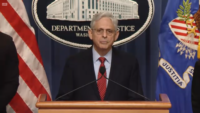The Justice Dept. has determined that Clean Air Act enforcement actions under the Environmental Protection Agency's "new source review" are legally reasonable. That means that Justice's pending lawsuits against several powerplants, refineries and other facilities as well as ongoing prosecutions and settlement talks will proceed.
The Justice Dept. review, begun in May 2001 after a recommendation by the Bush administration's National Energy Policy Development Group, makes no judgment about the underlying new source policy issues. That is up to EPA, a senior department official told reporters on Jan. 15. The Bush White House is widely expected to water down the controversial rules, which were adopted in 1977 as amendments to the clean air law. The regulations later were strengthened by the Clinton administration, which took enforcement actions against several utilities in 1999.
At the center of the controversy is what constitutes a "modification" to an existing facility. Under current law a construction project that results in a modification of a facility requires a new source review and installation of new pollution controls. If the project is not considered a modification, such as a repair, no review and additional pollution controls are required. Many utilities have found ways to bypass that requirement, however, arguing that the changes are too costly. Under pressure from industry and the Dept. of Energy, the Bush administration is expected to ease the new source review rules as early as Jan. 18.
The National Environmental Trust calls the Justice report a "cynical publicity stunt," coming just days before the trust predicts EPA will issue a "rollback" of the rules. "The changes will undercut all the lawsuits against the dirtiest of coal-fired powerplants," asserts Philip Clapp, NET president. "No judge is going to mandate that a utility spend millions of dollars to clean up air pollution to comply with rules the Administration has repealed," he insists.
The National Resources Defense Council commends the Justice Dept. for continuing to prosecute violators of the clean air law. But the Justice decision "only increases our bewilderment over why the administration is considering an attempt to legalize this harmful behavior," says John D. Walke, director of NRDC's clean air program.
A spokesman for the Electric Reliability Coordinating Council, a coalition of electric generating companies, says that all of the facilities in question operate under federal permits that fully protect human health and the environment. "No one has ever suggested that any of the facilities have exceeded these legal and protective permit limits," the spokesman says.



Post a comment to this article
Report Abusive Comment